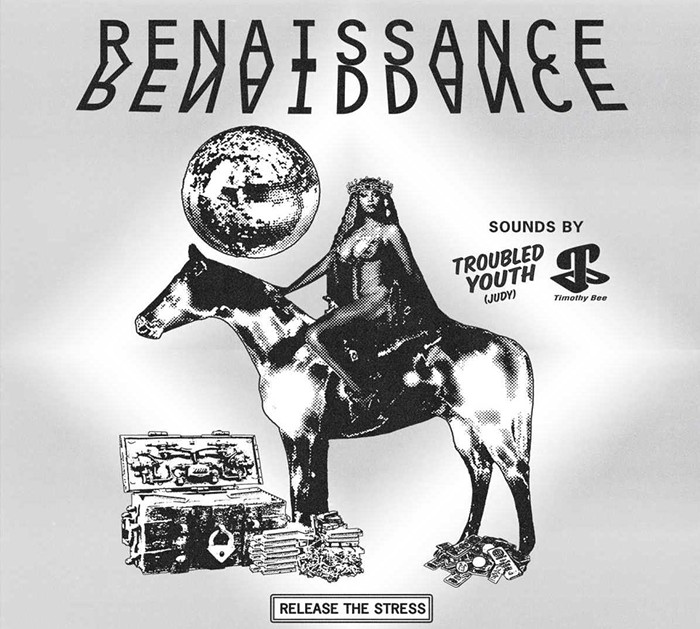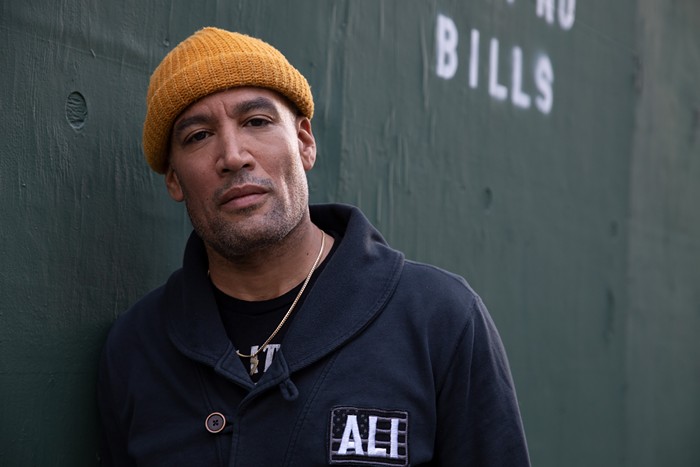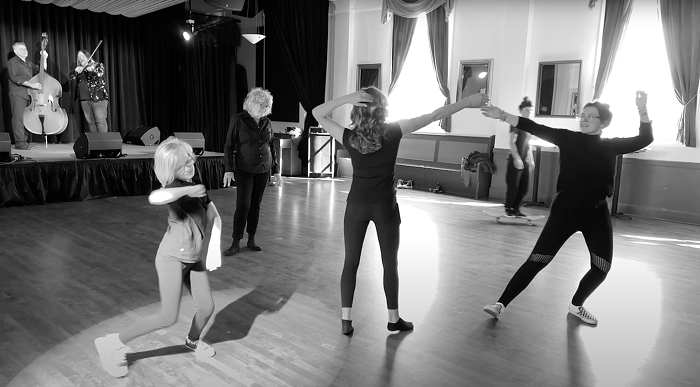The conflict-of-interest police insist that I come clean with my relationship with the Good Life. Fine. During the swelling optimism of election week 2004 I found myself not campaigning for the end of the Bush regime, but instead drunk in Tokyo, Japan, tagging along with a band that was not the Good Life. But, as bands often do on overseas excursions, they were sharing some dates with the Omaha quartet, and so that meant I was spending time under the flickering lights of Shibuya with the Good Life as well. Other than their penchant for vending machine Sapporo—a thirst that eclipsed even mine, although I swear my interest was merely the novelty of purchasing booze from a robotic machine perched on a crowded subway platform—I learned little about their mannerisms, interests, personalities, or about the Good Life as an entity.
But the band itself is not the story here, nor is my lack of a relationship with them. Instead it's their music that warrants your attention. Four records in seven years, all uniquely different, all great. First was 2000's debut, Novena on a Nocturn, which found Tim Kasher—frontman of indie titans Cursive—sullen and sleepy-eyed, unsure of where this solo vessel was taking him, but resigned not to fight it either way. Percussion was primarily in the form of bedroom electronic beats, and the typically raw howl of Kasher's banshee vocals were pleasantly restrained. The Good Life suddenly felt important.
Album number two, Black Out, lived up to its title. It's the record you make freshly divorced, hemorrhaging emotions while holed up during the most brutal of Omaha winters. It's an unanswered cry for help muted by the cold and uncaring touch of alcohol. As a listener, this is the one record you keep behind a glass case, only smashing your way in during the direst of circumstances. It's at this point in their catalogue that you, the rabid fan or just the casual follower, have to come to terms with the Good Life. Their recordings will never be pleasant excursions. Instead feelings get hurt, the bad gets worse, and even the most tender of bruises refuse to fade. If you want to leave, do it now.
If you stayed, you know that 2004's Album of the Year was what put the Good Life on the map as more than just a side project to kill time between Cursive albums. The record, with its boisterous title and calendar-themed song structure, started out with the protagonist on the floor throwing up in a ladies' room stall, and wrapped up 12 songs/months later with little closure, personal growth, or soul-touching moral experiences. Here, life lessons are not learned, people do not better themselves, and adversity is something you fail to overcome just before the screen fades to black and the credits roll. This is not Hollywood cinema.
Or maybe it is. Kasher has recently bid farewell to Omaha (his second time trading the Cornhusker State for the West Coast, the first being a mid-'90s temporary relocation to Portland) and settled in Tinseltown to sell his wares not as a musician, but as a scriptwriter. The Good Life's fourth album Help Wanted Nights portrays characters from Kasher's debut screenplay that (not surprisingly) frequent a small-town bar and whose stories are told with the soft touch of a man who can write about the human condition in a way that so few can. There is "Keely Aimee," a flawed, if not cursed, woman whose struggles attract the sympathy of the song's narrator, who sings, "Keely Aimee, I know this world is such a heavy weight/And, Keely Aimee, those crows' feet perched at such an early age/Well, I'd help you shoo those birds away/If the burden's just too much/See, Keely, I love your suffering like gravity loves a stumbling drunk."
It remains to be seen if the soul-crushing power of Hollywood can silence the reality of Kasher's characters (a wacky Keely Aimee sitcom perhaps?), but judging by the raw beauty of Help Wanted Nights, that seems unlikely. In fact, I'd wager that there is little that can stop the stride of the Good Life, a dynamic band whose best recordings still might lie ahead of them. Then again, maybe that's just the conflict of interest talking. After all, I did sing karaoke with them. The song was Toto's "Africa," and while I sounded like a drunken mess in that crowded Tokyo bar, they sounded absolutely perfect.


















